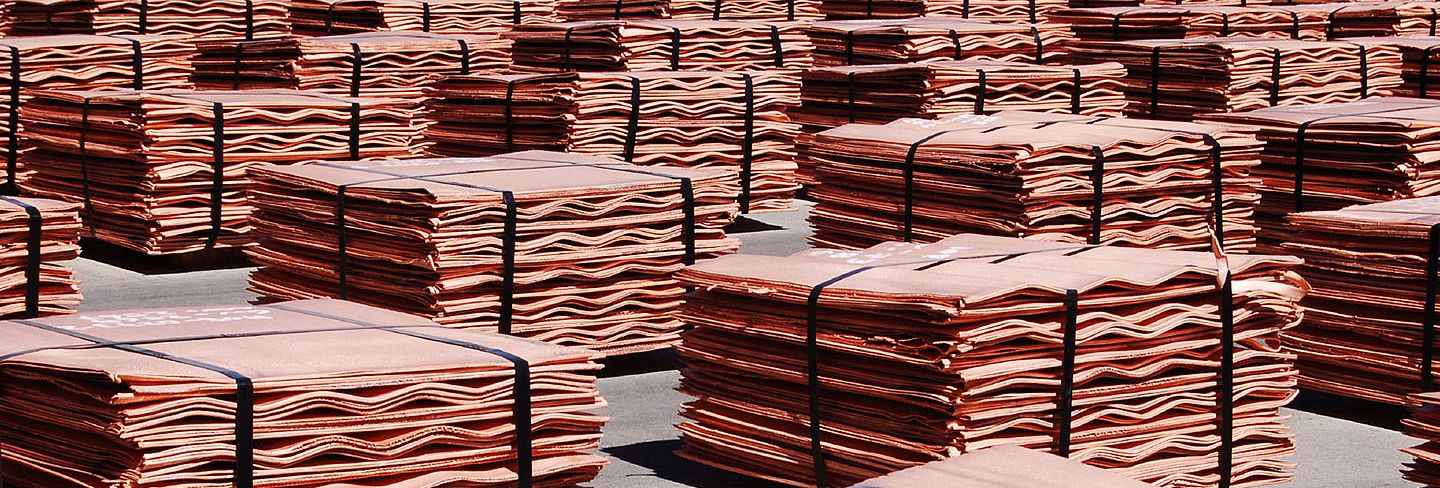Why Copper Products Are Crucial for Electrical Applications and Efficient Electrical Wiring
Why Copper Products Are Crucial for Electrical Applications and Efficient Electrical Wiring
Blog Article
Just How Copper Products Contribute to Lasting Practices in Various Sectors
In sustainable energy systems, for example, copper improves the capability of solar and wind innovations, while its application in building reduces waste through durability. As sectors look for to take on more lasting techniques, the role of copper might show pivotal in accomplishing ecological goals.
Copper in Renewable Power
Copper plays a crucial function in the innovation of renewable energy modern technologies, working as an essential conductor in different applications. Its phenomenal electrical conductivity and resistance to deterioration make it a suitable material for electric circuitry, which is essential in solar panels, wind generators, and energy storage systems. In solar photovoltaic or pv systems, copper is used in the interconnections and circuitry, making it possible for effective power conversion from sunshine to electrical power.
In wind power, copper is indispensable to the generators and transformers that transform kinetic energy into electric power, making certain optimal efficiency and dependability. The demand for electric lorries (EVs) is raising, with copper being a key element in batteries, electric motors, and charging facilities. The change to EVs dramatically enhances the need for copper, as these cars generally utilize four times much more copper than standard inner burning engine lorries.
As the world seeks to reduce environment modification and change to sustainable energy sources, copper's role becomes increasingly crucial. The product not only boosts the effectiveness and resilience of eco-friendly energy systems yet also sustains the wider goal of minimizing greenhouse gas exhausts and promoting a lasting future.
Eco-Friendly Construction Materials
In the last few years, there has actually been a significant shift towards the fostering of eco-friendly building products in response to expanding environmental worries. This change is inspired by the demand for sustainable options that decrease eco-friendly footprints while preserving architectural stability and visual charm.
Copper, known for its sturdiness and recyclability, has actually emerged as a principal in this field. It can be utilized in roofing, pipes, and electric systems, adding to energy efficiency and minimizing waste. Copper's long life implies less replacements gradually, more boosting its sustainability account.
Additionally, materials such as bamboo, reclaimed timber, and recycled steel are getting appeal. These alternatives not just offer decreased ecological influence yet additionally promote source conservation. As constructing codes progressively emphasize sustainability, designers and contractors are integrating these materials into their jobs, fostering advancement in design.
The boosting adoption of environment-friendly building materials shows a more comprehensive commitment to sustainability in the built atmosphere. By prioritizing these products, the building market can considerably reduce its carbon impact, straighten with regulatory requirements, and support a healthier ecosystem for future generations. This pattern notes a crucial step in the direction of a much more lasting future in construction.
Copper's Duty in Medical care
Current studies have actually highlighted the significant role of copper in health care setups, specifically as a result of its antimicrobial residential properties. Copper surface areas have been shown to reduce the visibility of pathogens, consisting of viruses and germs, by approximately 99.9% within a brief duration. This impressive effectiveness makes copper an important product for high-touch surface areas in hospitals, such as doorknobs, bed rails, and IV posts, consequently contributing to boosted infection control steps.
Along with its straight antimicrobial impacts, copper also contributes in the more comprehensive context of healthcare facility sustainability (Copper Products). By including copper right into clinical tools and home furnishings, healthcare facilities can reduce the occurrence of healthcare-associated infections (HAIs), which not only boosts person results yet additionally reduces the costs connected with extensive medical facility keeps and extra therapies
Furthermore, copper's longevity and recyclability align with sustainable techniques, allowing for accountable resource management. As health care systems increasingly prioritize both individual safety and environmental stewardship, the combination of copper products is coming to be much more prevalent. This dual benefit underscores copper's crucial payment to a much healthier, much safer, and extra sustainable healthcare environment.
Sustainability in Transportation

In addition, copper's longevity and corrosion resistance add to the longevity of transportation infrastructure (Copper Products). In rail systems, for circumstances, copper parts enhance the reliability and effectiveness of signaling and power systems, necessary for lowering hold-ups and power intake. In addition, copper's function in renewable resource systems, such as solar and wind, sustains sustainable transportation remedies by providing clean power for electrical transit choices
Investments in copper technology not only foster sustainability yet also promote economic growth and job creation in environment-friendly sectors. As markets aim to satisfy rigorous ecological policies, the application of copper products in transport web link arises as an essential strategy in achieving sustainability goals and promoting a cleaner, more reliable future.
Copper and Circular Economic Climate
As the globe significantly accepts sustainability, the role of copper in the circular economy comes to be ever before extra considerable. Copper's innate properties-- such as its recyclability, resilience, and conductivity-- setting it as an essential material in a resource-efficient economic climate. The circular economic climate intends to decrease waste and make the most of source usage through recycling and reusing products, and copper master this regard.
The metal can be recycled indefinitely without loss of quality, making it an optimal prospect for lasting methods throughout different industries, consisting of building, electronic devices, and renewable resource. By recycling and recouping copper from end-of-life products, sectors can substantially reduce the requirement for virgin products, thereby decreasing environmental pop over to these guys influences connected with mining and processing.
Furthermore, the integration of copper into circular economy frameworks not just conserves sources yet also cultivates development. Organizations that prioritize copper reusing add to a more sustainable supply chain, improving their competition while straightening with regulatory demands and consumer preferences for ecologically accountable products.
Verdict
In verdict, copper items significantly add to sustainable techniques throughout numerous markets. Their you could try here important duty in improving renewable resource technologies, promoting environment-friendly building and construction products, supporting infection control in healthcare, assisting in lasting transport, and embodying the principles of a circular economic climate highlights the convenience and importance of copper. By integrating copper into different applications, markets can accomplish better performance, reduce environmental impact, and align with global sustainability goals, ultimately fostering a more lasting future.

Copper's superb conductivity makes it a recommended material in electric automobile (EV) systems, boosting power efficiency and performance. Furthermore, copper's function in renewable power systems, such as solar and wind, sustains sustainable transport options by providing tidy energy for electric transportation choices.
Their important function in boosting renewable energy modern technologies, advertising environment-friendly building products, sustaining infection control in medical care, facilitating lasting transport, and embodying the principles of a circular economy highlights the flexibility and relevance of copper.
Report this page